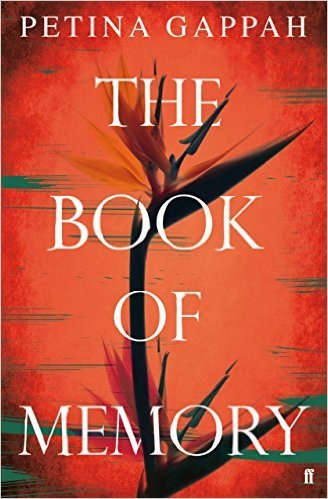What do you think?
Rate this book


274 pages, Hardcover
First published April 4, 2015
As a murungudunhu, I am a black woman who is imbued not with the whiteness of murungu, of privilege, but of dunhu, of ridicule and fakery, a ghastly whiteness.
Gappah has been called (to her dislike) "the voice of Zimbabwe." Rather than being pigeonholed as an African author, or given the impossible task of being a single voice for a diverse population with diverse and opposing beliefs, we should regard Gappah as an author from Africa who writes for Zimbabwe. Memory's white skin, and her sale to Lloyd, results in her receiving a white upbringing of privilege, while her childhood on Mharapara street gives her memories of growing up in modern Zimbabwean black culture, and in poverty. She is too white for the township and too African for the rich white farm community. Memory is an outsider who watches and reflects on both sides of the growing Zimbabwean conflict.
The whole thing had been reduced to the simple matter of blackness versus whiteness. White people stole the land. Black people took farms and ruined them. Black people took control and ran things down. White people stole.
The Book of Memory is a bilingual book, as Shona phrases appear without translation. However, I never felt that I couldn't understand what was going on; why should English be the only written language for a society that is anything but homogenous? At the Edinburgh international book festival she quoted Chinua Achebe, saying, "Let no one be fooled by the fact that we may write in English, for we intend to do unheard-of things with it." In addition, the inclusion of Shona superstitions and traditions made the novel sing with pride for her country. It also sang of sorrow, as the farm invasions and murders occurred, and as Memory encounters racism, ostracism and loss. However, there is a note of humor that had me giggling too, particularly in the hilarious malapropisms of Patience.
"Irregardless of the absence of water," she says, "you should make sure the hoarse pipes are connected."
"You must make sure that your plates and bowels are clean."
As the book shifts back and forth between Memory's childhood, her early years with Lloyd, her current circumstances in one of the worst prisons in the world, and the days leading up to Lloyd's murder, a vivid and vibrant picture of Zimbabwe is skillfully painted. The Shona traditions and superstitions give a depth to the stories, and give voice to an advanced, culturally complex society that has been silenced and discarded by the western-centric education system in place since the beginning of colonialism. The effect of this is the colonization of the mind, as prison guards dream of the riches of white privilege and base their ideas of success on it, while they continue to fear witchcraft and discriminate according to their old superstitions.
In this independent, hundred-per-cent-empowered and fully and totally indigenous blacker-than-black country, a superior education is one that the whites would value, and as the whites do not value local languages, the best-educated among us have sacrificed our languages at the altar of what the whites deem supreme. So it was in colonial times, and so it remains, more than thirty years later.
The wide-reaching message of the book is that of political and social commentary. However, the story of one woman awaiting her execution for a complicated crime is a brilliant story as well. As she tells the story of her circumstances, the reasons for her parents' sale of her to a white stranger, her relationship with him, and the many different circumstances that lead up to his murder, the reader is gripped and forced to question their assumptions at every turn. The final truth was entirely unexpected, and utterly heart-breaking.
She is the voice of the Chimera that haunts my dreams. She is the stranger that glances back from my mirror when I least expect to see her. She is my beating heart, my palpitating fear.
The Book of Memory is a multilayered book, both an emotionally charged story of passion and crime, and a critical portrayal of Zimbabwean corruption and politics. Ultimately, however, it is a mature and honest depiction of a diverse society that is working through its violent and traumatic history, and how that history affects the present. It is a story of Zimbabweans of all races and alignments, and how prejudice, ignorance and corruption continue to cause immense tragedy. Gappah is not the voice of Zimbabwe, but she adds her voice to the chorus of Zimbabwean writers who are doing incredible things with fiction, and in The Book of Memory she hits all the right notes.